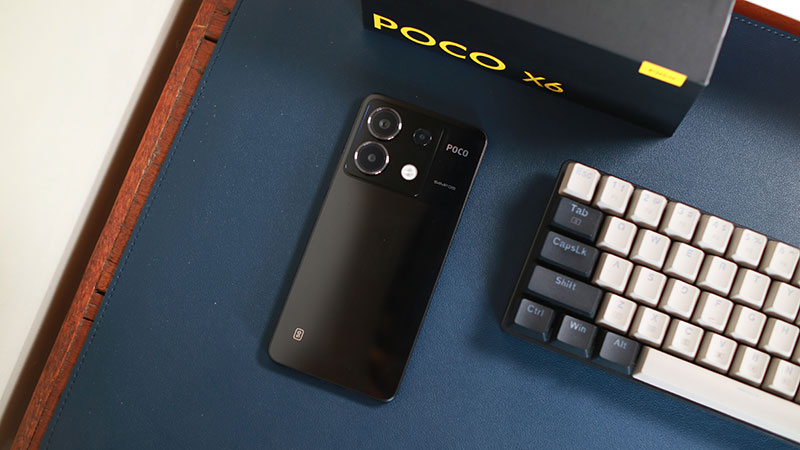A couple of days ago, I was filling out a behavioral assessment test as part of my internship application, and I came across a very interesting statement: “How much of your success is attributed to your hard work?” The question stunned me for a good 3 minutes as I tried to replay all of my life experiences. In the end, I answered 50%, a safe but not quite a definitive answer, to say the least. Up until this point, I do feel like a large portion of my success has been a product of all my blood, sweat, tears, and all-nighters that I pulled. However, the assessment question truly gave me a reality check because I now realized that luck may have a more significant role than I initially thought in determining where I am today.
Fortunately, I previously discussed the role of randomness or the infamous RNG in video games, which you can check out in this article. Now, we can extend our knowledge about in-game probabilities into the real world and answer the million-dollar question: is success luck or hard work?
Why Many Think “Hard Work = Success”
Today’s society has always pushed the notion that successful people are all individuals who have put in the most amount of work. Furthermore, successful people rarely spoke about how lucky they are to be in the position in the first place and instead attributed it to all their hard work. When is the last time you heard a celebrity or millionaire say that they are lucky to be famous? Instead, we are always bombarded with quotes that resemble the notion of hard work beats talent or some sort.
“I never took a day off in my twenties. Not one.” – Bill Gates
“What’s the key to success? The key is, there is no key. Be humble, hungry, and the hardest worker in any room.” – Dwayne ‘The Rock’ Johnson
On the surface, the logic adds up. If you put in work, you are going to be skilled and experienced enough to gain an advantage over your competition. In school, if you study more you will most likely get higher grades. When you put more effort into your job, your boss will probably give you a raise at some point in time.
However, this logic may also be a product of our excessively selfish view of the world, a phenomenon called egocentric bias. This bias is considered psychologically innate for most of us and explains instances of why we often overestimate the amount of work we contribute to a project or why we feel play a significant role in some past even despite not being the case. Selfish might not be actually the proper term to describe egocentric bias because the phenomenon also explains why we overly remember embarrassing events compared to others or think that we are the primary cause of a problem. But, I digress, egocentric bias may also be the culprit why we think that our success is due to all of our work and effort. Everyone, even myself, will probably get offended if someone pointed out that our success is only a product of circumstance. The notion that our achievements are gifted, not earned, immensely downplays all of the hard work that we put in.
Thus, I do not reject the philosophy that success is correlated with hard work. After all, laziness will not bring you anywhere in life. However, it is all ignorant to say that luck never played a role in the things we accomplish. It is also naive to think that all unsuccessful people are lazy since they might just be a byproduct of misfortune. How is this so? Let’s take at the role luck plays in success.
How Luck Plays a Huge Role in Success
One of the infamous uncontrollable factors that largely determine our success in life is our birthplace. For all we know, there are many hardworking individuals in poorer countries working dawn to dusk, risking their health and well-being as they struggle to survive in unfathomable working conditions. If hard work is the barometer of success, then these people are millionaires, not the businessmen working in sky-high office towers. They work 10 times as hard as the richest individuals in the world, and yet it is almost impossible for them to become rich simply because they are born in a country with a low GDP. So are all unsuccessful people lazy? Not always. Are they just unlucky? Most probably.
Your parent’s social class will also play a huge role in your future success. Being born into a lower-class family can potentially hinder access to adequate nutrition, proper education, and all the required elements of building a sustainable career. A more subtle luck factor is your appearance. Your physique, height, or race will open up (or close) different opportunities in your career. Although the HR department may deny this, looks do matter in the hiring process. Winning the genetic lottery or being good-looking also allows you to resort to social media as an influencer or do modeling gigs on the side.
You might think that the examples above are extreme outlier cases that do not apply to the general population. But what if I tell you that luck affects the success potential of every one of us, rich or poor, beautiful or ugly, tall or short. What if I tell you that the “normal” people in the population might actually have the best chance of becoming successful?
Simulating Luck Factor
Let’s take a look at an amazing paper called Talent vs Luck: the role of randomness in success and failure. I really recommend checking out the paper for yourself since it is much more readable compared to other scientific papers out there. But if decide not to, I’ll summarize what the paper discusses here. Just note that I will dumb things down and use abstractions to make statistical concepts easier to grasp
The paper looks to investigate the luck plays a larger role in determining a person’s success than their raw talent. Even though talent is the variable that is discussed in the paper, we could also interpret talent as “hard work” for our case. The study investigates the role of luck by assigning 1000 agents with different sets of attributes such as talent, intelligence, and skill. The researchers ensured the attributes are distributed according to the Normal distribution. If you don’t know or forgot what the Normal distribution is, the following figure might help:
Essentially, most of the agents will have a talent score of 0.6, around the middle (also called the mean or average) of the distribution. There might be some outliers with a talent score of 0.8 and above; these are the talented or smart kids that you probably envy in school.
These agents are placed in a so-called virtual world to move around and are also given capital, which is essentially their money. Of course, agents with more talent will be able to increase their capital at a greater rate, similar to what we expect in the real world. The researchers then introduce lucky and unlucky events in the world, which are represented by small green or red circle blobs. Lucky circles are green, whereas unlucky circles are red.

If an agent bumps into a lucky circle, their capital doubles proportionally to his or her talent, similar to how you might get a big job opportunity in real life for instance. Note how talent still plays a factor in the lucky event. The researchers purposely included this setting in the modeling process since they believe that talent (or hard work in our case) is still necessary for us to capitalize on the lucky opportunity. For instance, you might be lucky enough to be offered a position at a company with a high salary. However, if you don’t study hard for the interview, then you will not get the job in the end.
On the other hand, if an agent bumps into a red circle, their capital or success will be halved. In this scenario, talent plays no role. Unfortunate circumstances like a car accident or a career-ending disease do not depend on talent or hard work.
Well, what is the result of the simulation? Eerily, the results closely resemble the distribution of wealth in the real world, which follows the Power Law. The Power Law distribution is just another form of distribution, but with most of the population concentrated on the low end of the spectrum instead of the middle.

Here is a comparison of the Power Law distribution compared to the Normal distribution
The Power Law model is often referred to when discussing wealth distribution since there are a lot of poor people and only a handful of billionaires in the world. In an ideal world where talent or hard work equals success, we would see a Normal distribution when modeling wealth. However, the discrepancy between the two distributions suggests that there is a greater power at play. Is it luck? Well, take a look at the result of the simulation below.
It might not be obvious at first, but what you are looking at above resembles the Power Law; many unsuccessful people and a small number of extremely successful individuals. Scary, isn’t it? But, of course, the bigger question is: are the successful people agents talented (hard-working)? Nope. Do you see the agent with the 2600 success score on the right side of the graph? Well, he had a talent score of 0.61, which is only 0.01 greater than the mean talent score value of 0.6. You can see this information more clearly in the graph below.

The plot above showcases each agent on the talent spectrum (on the x-axis) and their corresponding success score (on the y-axis). The tall red line you see in the middle is our lucky man, which again proves that he is just a normal guy with no special talent. On the other hand, take a look at some of the talented agents with a hard-working mentality on the right side of the plot. The most talented agent, in fact, had a success score of less than one unit (0.625 to be specific), which is miles away from the highest success score or 2600.
The researchers, of course, did multiple simulation runs, but all of them ended with the same conclusive results. Most of the successful agents have mediocre talent or were never really hard working. Why is this? Since there are more mediocre agents in the normal distribution, there is a higher chance for them to bump into the green lucky opportunity and avoid the red unfortunate circumstances. Hence, their success is largely part of their fortune, not talent, not skill, not intelligence, and not hard work.
Conclusion
So, does luck play a role in success? Yes. Should you just stop working and start gambling with reality? Definitely not. Remember that the researchers used talent as a coefficient when multiplying the success score on a lucky event. Quoting directly from the paper “the advantage of having great talent is necessary”. However, from the results, we also know that talent is “not a sufficient condition to reach a very high degree of success.” In other words, success does not solely result from hard work alone, instead it is a culmination of talent, effort, and some degree of fortune.
But realizing that your hard work may not pay off in the future can be extremely demotivating. You can be the hardest working person in the world, but may never reach success if you never come across the lucky green circles in your lifetime. So what should you do? Paradoxically, I think it is immensely beneficial to have the hard work = success mentality when you are trying to build your career. Believing you have full control over your future will undoubtedly help you push to work hard, stay strong and never give up, which are all the essential ingredients for success. It also helps to remind yourself that laziness most definitely never equates to success. It doesn’t matter how lucky you are, you will never become successful if you will never capitalize on the fortunate opportunities that you are presented in life.
However, once you reached your goal at the top, you must also remember that your achievements are, to some extent, also a product of luck. Most importantly, don’t be the ignorant fool that promotes naive meritocracy – the notion that people’s progress in life is solely caused by their own accomplishments instead of external factors such as birthplace or your parent’s social class. Naive meritocracy is also grounded by the belief that everyone is given an equal opportunity in life, which as we have established, is completely false.
Thus, continue to work hard, and if you haven’t worked hard in your entire life, start doing it now. Who knows, maybe tomorrow you’ll bump into some fortunate event that will change your life for the better.
Featured image: Unsplash


